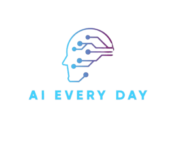The EU’s New AI Regulations: A Step Towards Responsible Innovation
The EU’s Draft Regulatory Guidance for AI Models: A Deep Dive into the Future of Artificial Intelligence Introduction: EU’s New AI Regulations Artificial intelligence (AI) has rapidly transformed industries, economies, and societies across the globe. From self-driving cars to advanced medical diagnostics, AI systems are becoming integral to various aspects of modern life. However, this rapid advancement also comes with significant risks, including issues related to privacy, security, and ethical concerns. Recognizing these challenges, the European Union (EU) has introduced draft regulatory guidance as part of the EU Artificial Intelligence Act, a comprehensive framework designed to ensure the responsible development and deployment of AI. This article explores the key elements of the AI Act, its implications for developers and businesses, and how it may shape the global landscape of AI regulation. Understanding the EU AI Act The EU AI Act is the first of its kind to regulate AI at a regional level. Unlike other regulatory frameworks, the AI Act takes a risk-based approach, categorizing AI systems based on their potential impact on human rights and safety. This classification allows for tailored regulatory measures that address the unique risks posed by different types of AI technologies. Key Categories of AI Systems The EU’s risk-based approach ensures that the regulation is proportional to the potential harm of the AI system. This enables innovation while safeguarding public trust and safety. Draft Guidance: Key Provisions and Features The EU’s draft regulatory guidance covers a wide range of AI-related issues, focusing on transparency, accountability, and ethical considerations. Below are the key provisions included in the draft: Implications for Businesses and Developers The EU AI Act will have a significant impact on businesses and developers who create and deploy AI systems. Below are some of the main implications: Compliance Challenges Opportunities for Innovation While the EU AI Act presents regulatory challenges, it also opens the door to new opportunities for businesses, especially those in industries like healthcare, finance, and transportation. By adhering to the AI Act’s guidelines, businesses can build AI systems that are both innovative and ethical, gaining consumer trust and ensuring long-term success. Additionally, the regulatory sandboxes and the focus on fostering AI innovation will help smaller businesses and startups enter the market more easily, providing a level playing field for all players in the AI ecosystem. AI Regulation and Global Impact The EU AI Act is expected to have far-reaching implications not only within the European Union but also globally. As the first comprehensive regulatory framework for AI, it sets a global benchmark for AI governance. Many countries, including the United States and China, have expressed interest in creating similar frameworks to ensure the safe development of AI technologies. Alignment with Global Standards The EU AI Act is designed to align with other global standards, such as the OECD Principles on AI and the UN’s AI and Ethics Guidelines. This global alignment ensures that companies operating internationally can comply with multiple regulatory frameworks without facing significant barriers to entry. Pressure on Non-EU Countries As the EU moves forward with its regulatory framework, non-EU countries may feel pressure to implement similar regulations to remain competitive in the global AI market. This could lead to a more unified approach to AI governance, which would benefit both businesses and consumers. The Future of AI Regulation: Challenges and Opportunities While the EU AI Act marks a significant step toward responsible AI governance, there are still several challenges to address. These include: Conclusion: A Blueprint for Ethical AI Development The EU AI Act represents a major milestone in the regulation of artificial intelligence. By providing clear guidelines on transparency, accountability, and bias mitigation, the EU is setting the stage for a future in which AI technologies are both innovative and ethical. While challenges remain, the AI Act provides a solid foundation for businesses to navigate the complexities of AI regulation and ensure the safe and responsible development of AI systems. As AI continues to reshape industries and societies, it is crucial that governments, businesses, and developers work together to ensure that these technologies benefit humanity. The EU AI Act is a crucial step in achieving this goal, and its impact will be felt far beyond the borders of Europe.
The EU’s New AI Regulations: A Step Towards Responsible Innovation Read More »
